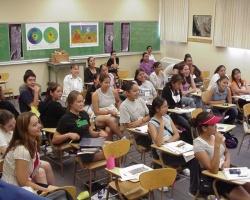Our increasingly globalized world makes it all the more important for the American education system to remain competitive and effective in preparing students to engage with the world’s growing demands and requirements. However, America remains near the bottom of lists of developing countries, and some are blaming the amount of time American students spend in class.
Among recent findings:
* Center for American Progress’ rankings of average weekly instructional time in school, measured over 12 years, students in the top-scoring countries spend the equivalent of one full year more in school.
* A U.S. Department of Education study showed U.S. students perform poorly on math and science tests compared with their international peers.
Recent studies demonstrate a positive correlation between the time spent in class and student performance.
In 2006 Kuss Middle School in Fall River, Mass., received a grant to experiment with extending the school day in order to bolster their performance and keep up to speed with No Child Left Behind demands.
Instead of leaving at 2:20 p.m., students left school at 4:15 p.m. “The added hours gave them more time for physical education and let them select special interest classes, in which teachers bolstered student skill deficits as revealed by testing. By the end of the year, student scores had risen by enough to enable Kuss to make the legal progress required.
School schedules were apparently “set decades ago to accommodate a farm economy rather the information economy of today,” and some point to the recent finding to support their arguments that our times demand a major overhaul.
In an experiment in Massachusetts 10 schools lengthened their instructional days by 25 percent and boosted their state scores in math, English, and science at all grades. However, few local school districts and states have made a change.
(USA Today, December 17, 2007)
What do you feel about longer school days? What do you do to help students cope with the increasing or changing pressures of our global economy?




